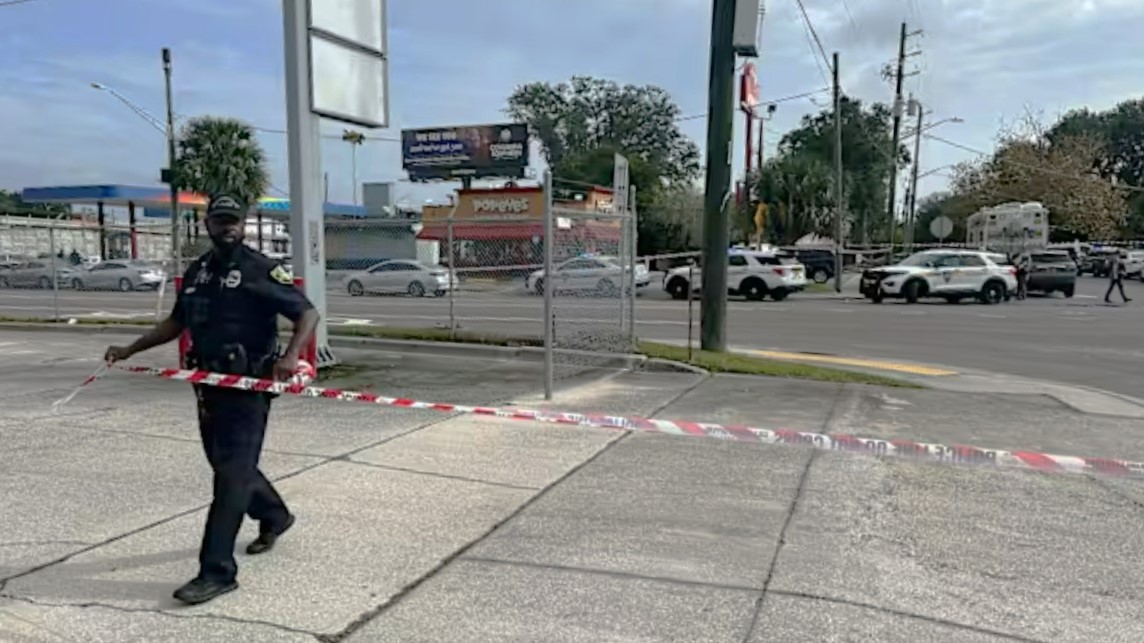After last week’s elections, the five-member St. Johns County Commission will have a three-person majority who campaigned on slowing the county’s rapid growth.
The two newly elected, Ann Taylor and Clay Murphy, ran campaigns that put slowing growth front and center. They’ll officially be seated on the board next week.
But Murphy says thinking of the three as a guaranteed voting bloc against every development that comes forward would be a mistake.
How they see it
Taylor and Murphy agree that the pace of St. Johns County’s growth is not sustainable. Taylor sees her election as a referendum on just that.
“I believe the reason I was elected is that I represent the residents first and foremost, and not special interests, and not developers and builders,” she tells Jacksonville Today. “I’m certainly not anti-development — I do want it to be very clear that I’m going to be very fair in every vote — but I do think it’s very obvious that we have had a commission that was very heavily biased towards residential development. And I want to see more of a balance.”
Taylor succeeds Henry Dean as the commissioner representing District 5, which includes the middle of the county and St. Augustine.
While commercial development has expanded in the last decade, homeowners still account for the majority — approximately 80% — of the county’s property tax revenue.
Both Taylor and fellow Commissioner-elect Clay Murphy want to see more diversified development.
“The massive expansion of residential development is what has put such a strain on our county, our roads, our budgets, our schools,” Taylor says. “And the bottom line is development is not paying for itself, and we need to fix that and we need to slow down the approvals.”
Murphy feels similarly, and he believes industrial development could bring new “high-tech, high-paying and clean energy jobs” to St. Johns County. He will succeed Roy Alaimo in representing the southeast part of the county, including St. Augustine Shores.
“The question is where would that kind of growth go, and what would it look like and can we attain that?” Murphy asks. “Is there a way to do that without harming the thing that brings people to St. Johns County in the first place?”
Both Murphy and Taylor are thinking about how growth will affect already-strained infrastructure.
Density is a concern, Taylor says, because densely populated residential buildings and communities mean cars on the road and more kids in already-packed schools.
She recognizes the need for housing that is accessible to working people, but she’d rather see developers keep workforce housing discounted for longer than approve new developments.
“You drive around and you see all these apartments, and what is amazing to me is how many of them are nowhere near even at capacity. There’s empty parking lots all the time,” Taylor says.
A voting bloc?
Taylor and District 1 candidate Ann-Marie Evans campaigned together with the goal of securing a voting bloc with incumbent County Commissioner Krista Joseph, the member who has been the most vocal in advocating for slowing growth.
Commissioner Christian Whitehurst defeated Evans in the August primary election by fewer than 1,000 votes.
During the campaign, Murphy was clear about his plans if elected.
A statement from Murphy’s campaign website reads: “As a law enforcement officer, I fought to keep our citizens safe. As your next county commissioner, I’ll fight even harder to slow the growth and preserve the high quality of life that makes St. Johns County the best place to live.”
But when asked whether he could be expected to vote along with Joseph and Taylor, who have promised to push back against growth, commissioner-elect Murphy says he doesn’t want to make any promises to that effect just yet.
“I”m very independent,” Murphy says. “I make my own mind up about projects and things.”
He says he’s heard the calls to slow growth loud and clear, and he agrees. Still, he believes what will be most important is listening to his constituents and finding common ground with his peers.
“I’m going to surround myself with very smart people,” Murphy says,” and we’re going to pick a direction and start rowing.”
And while he’s an advocate for changing the county’s approach to growth, he recognizes that mentality is already present to an extent.
“I know that there are people that have been working on this in our government and have worked really hard to find solutions to the problems we have,” Murphy says. “So I can’t discount the work that’s already being done. I can just say I’m going to add my energy to that going forward.”
One ongoing project in particular he hopes to throw his weight behind is improving West Augustine, an area that has been historically underserved.
Murphy says he’s “extended an olive branch” to the other members of the County Commission, and he looks forward to working with them to make sure St. Johns County’s government is responsive to its constituents.
“I really think we’ll be able to put any differences we have aside and really work together,” Murphy says.
Taylor sees things a little differently.
She’s still thinking about the attacks she endured in the lead-up to the primary election that painted her as an out-of-town Democrat masquerading as a Republican, and she questions whether other members of the County Commission can remain impartial after receiving donations from development interests.
“I am a strong conservative Republican,” she says. “I’m not a radical leftist liberal, and you’re definitely going to be seeing more fiscally conservative policies from me than you did from my predecessor.”
The two new members of the St. Johns County Commission will be sworn in during a special meeting on Tuesday, Nov. 19, in the County Auditorium at 500 San Sebastian View.
The meeting will be open to the public and livestreamed on the county’s website.







